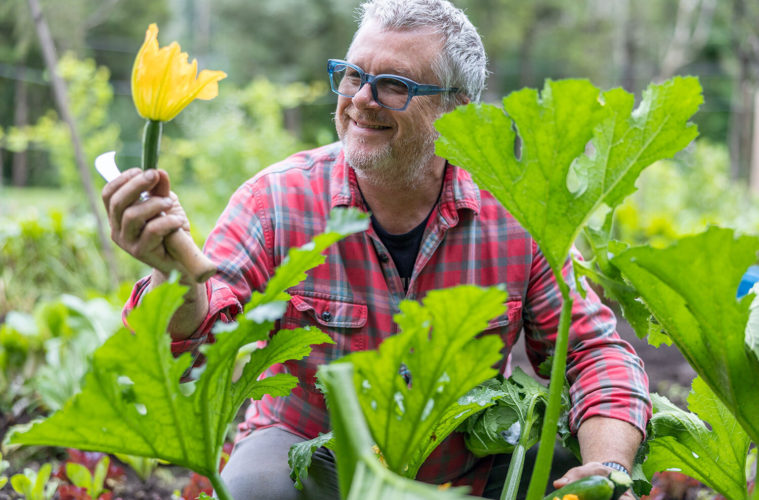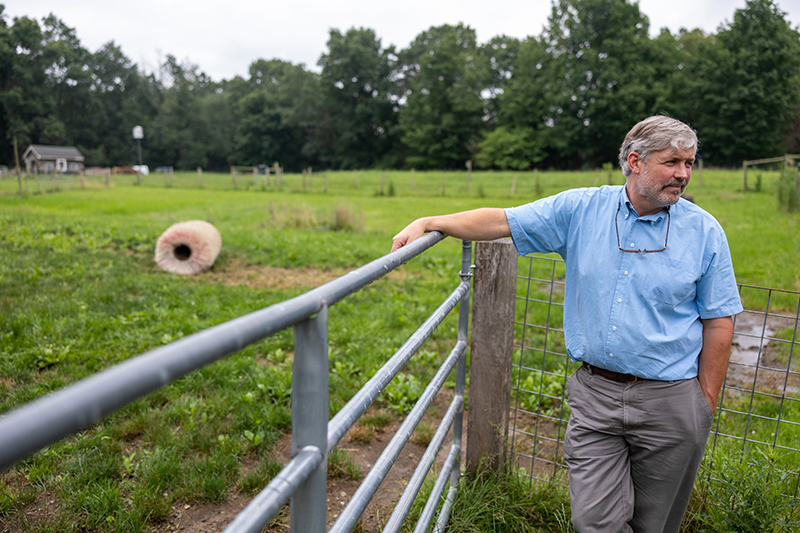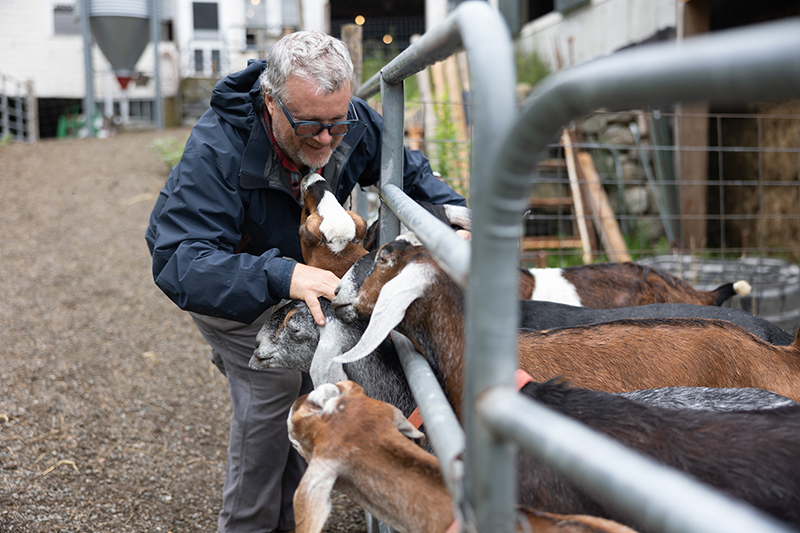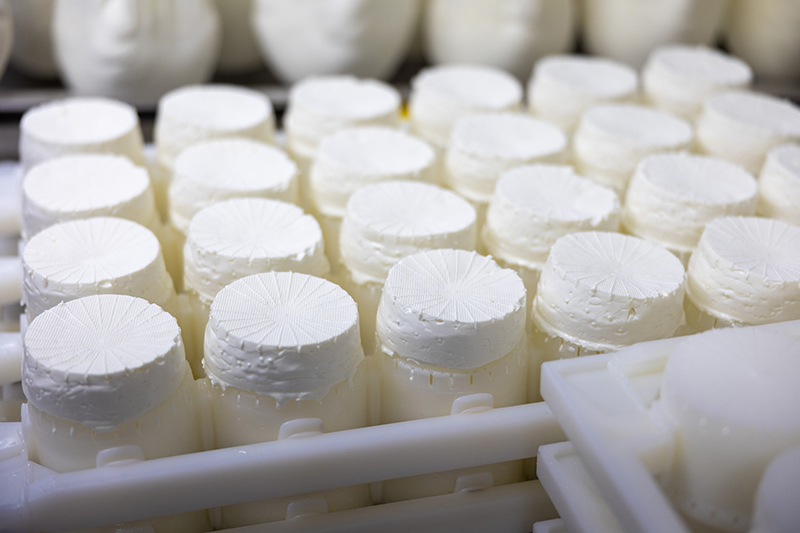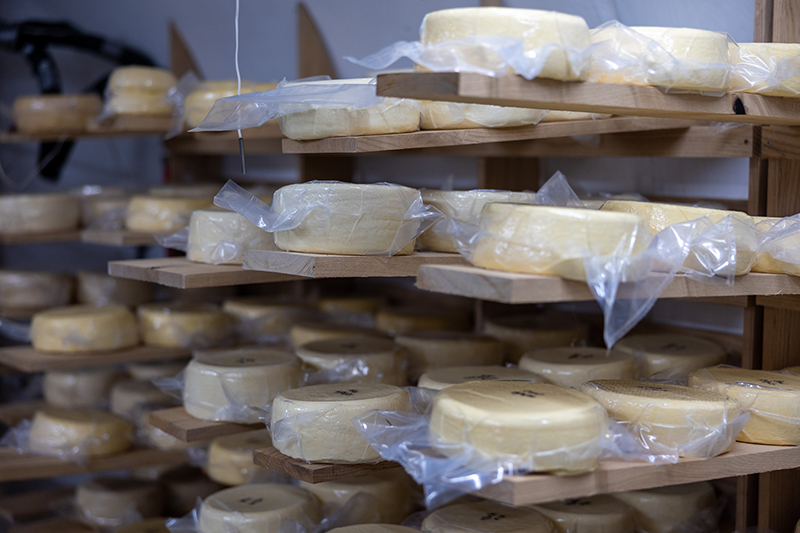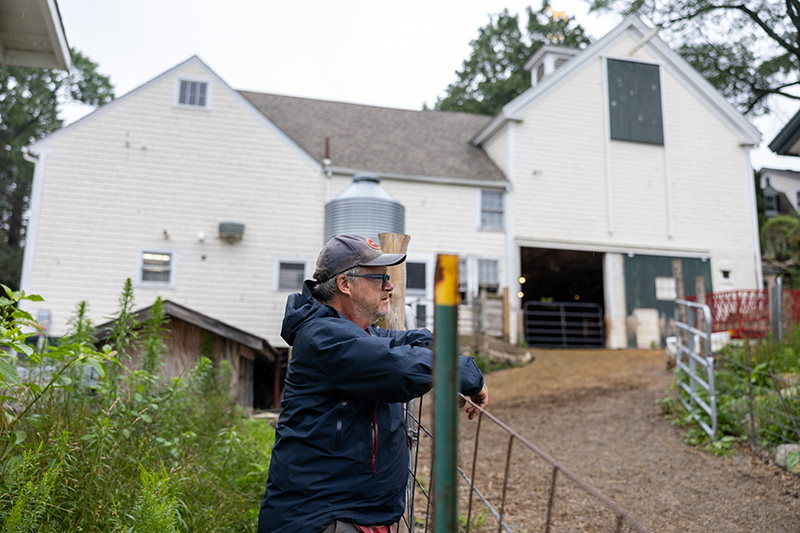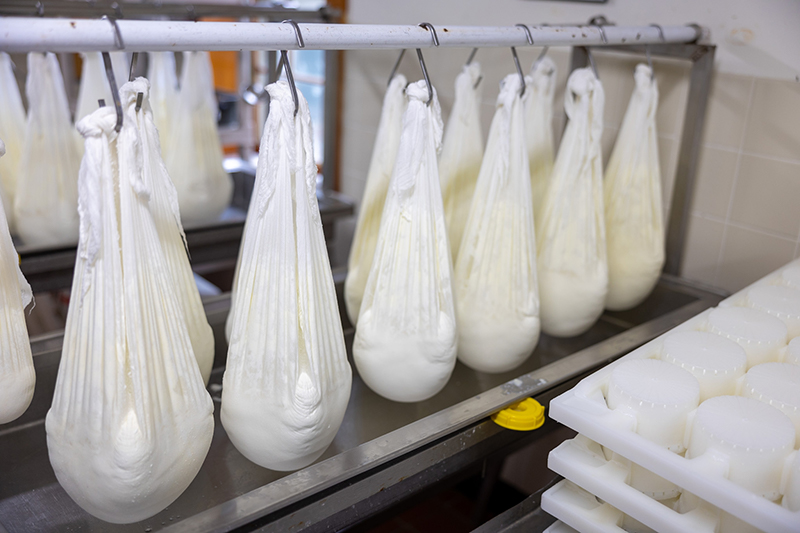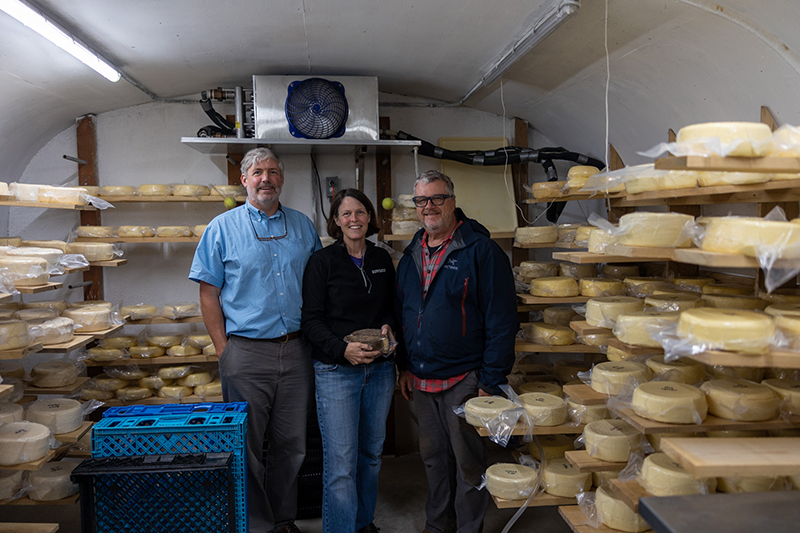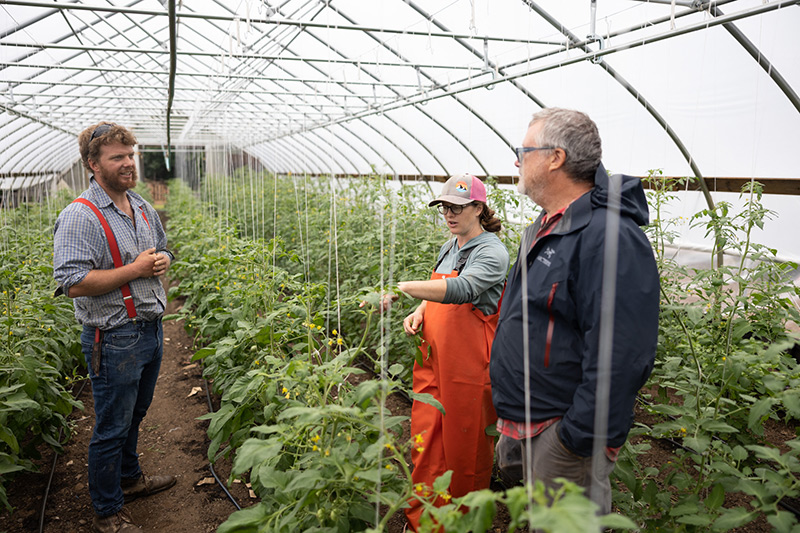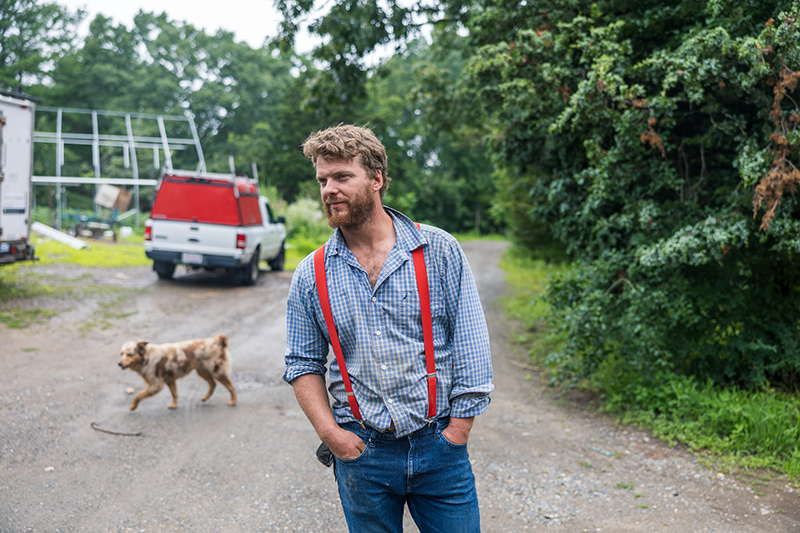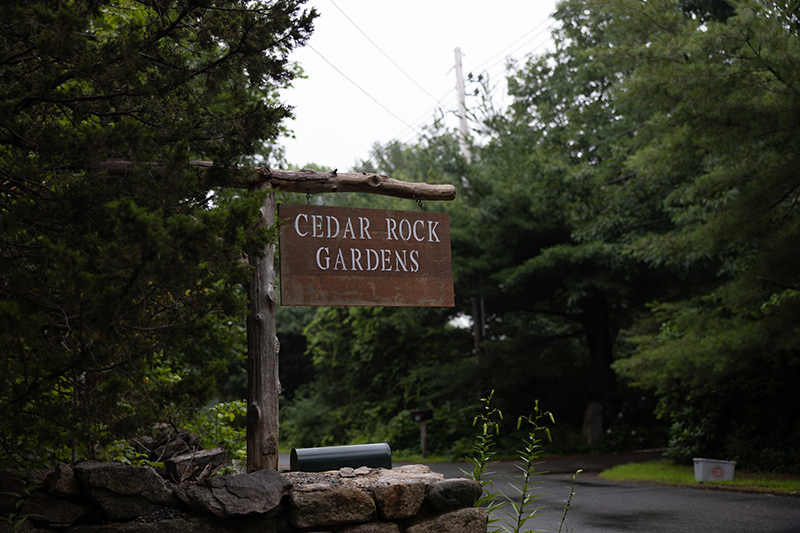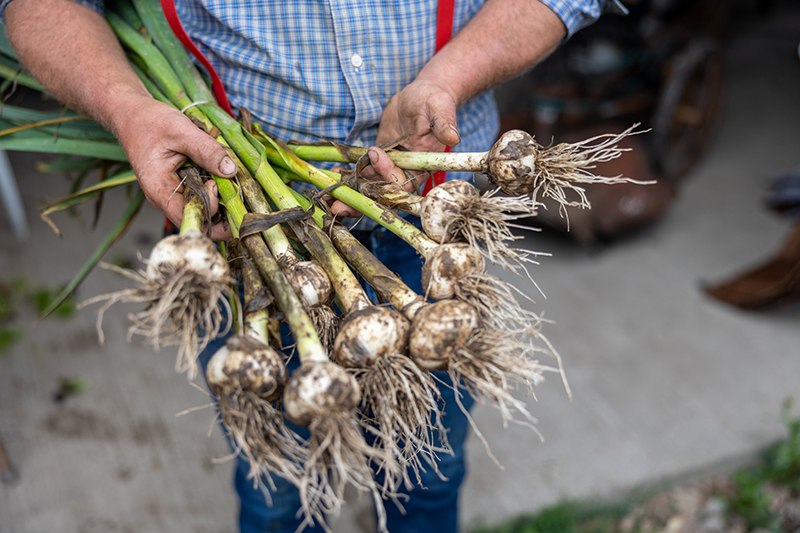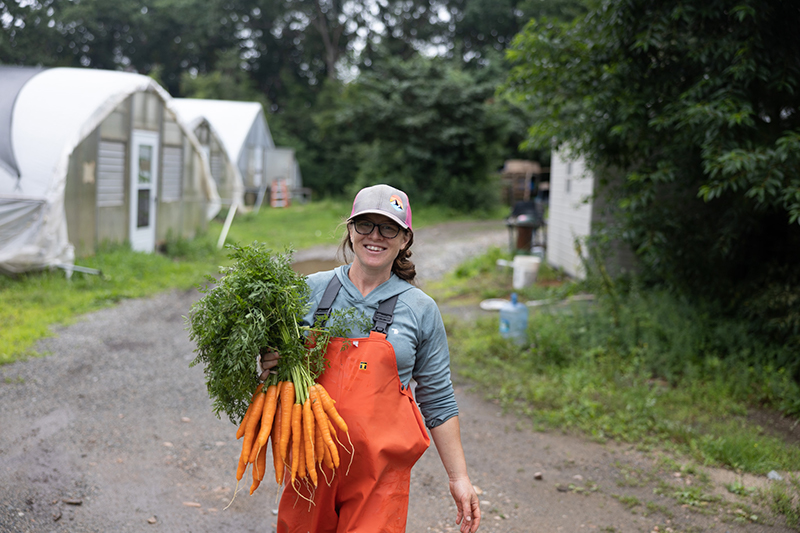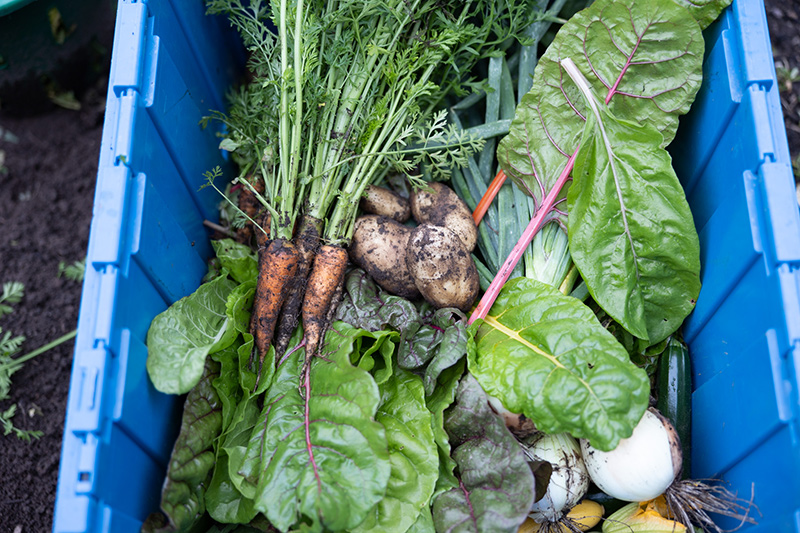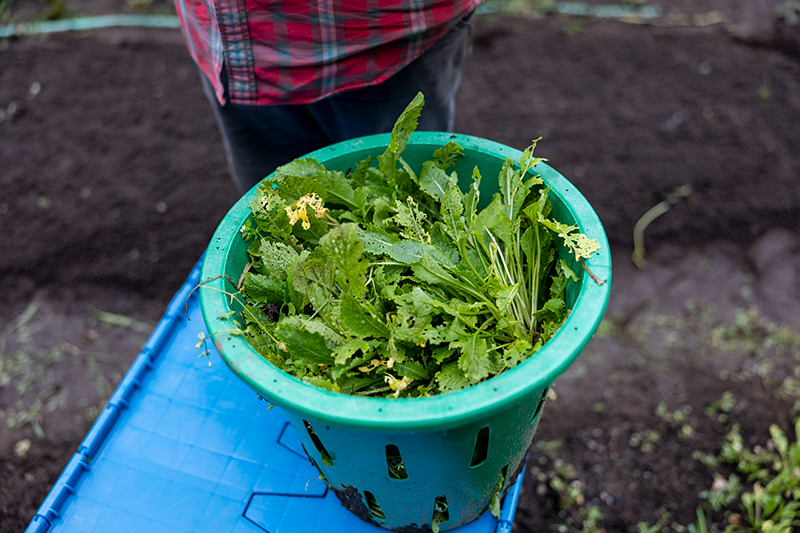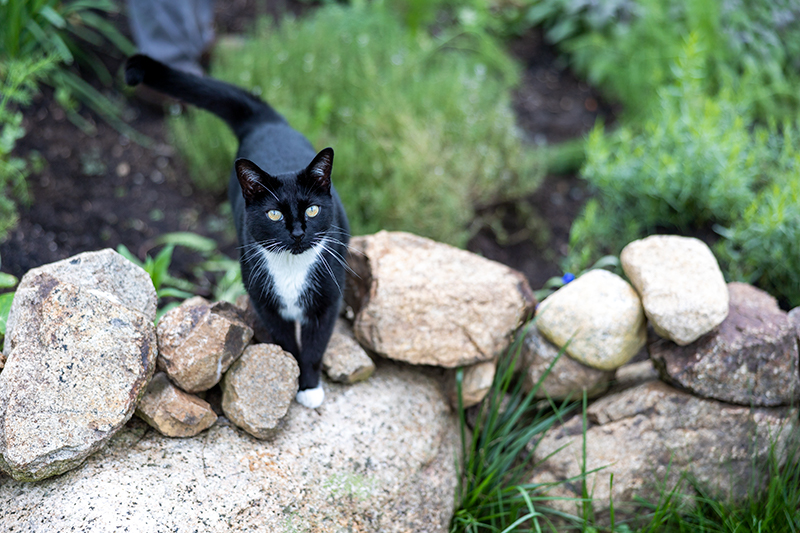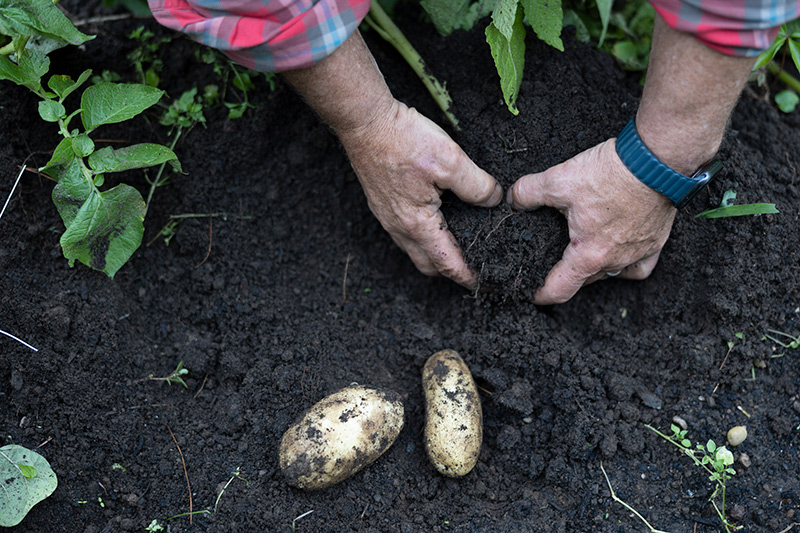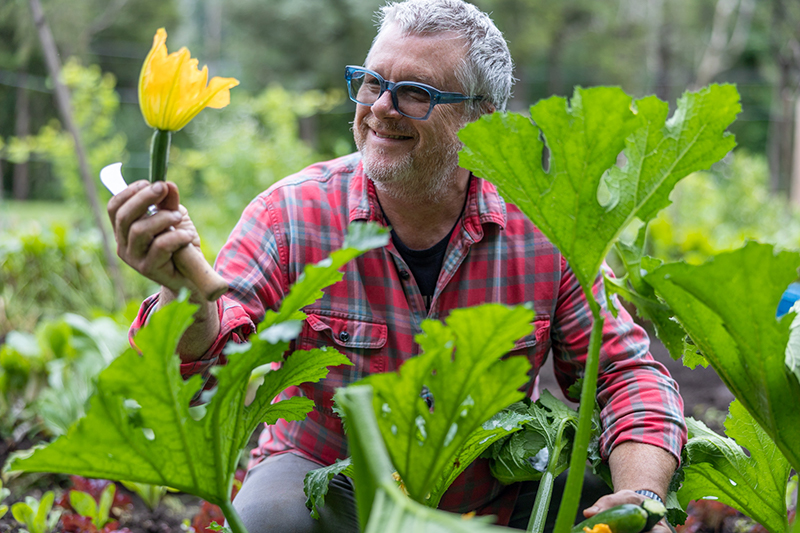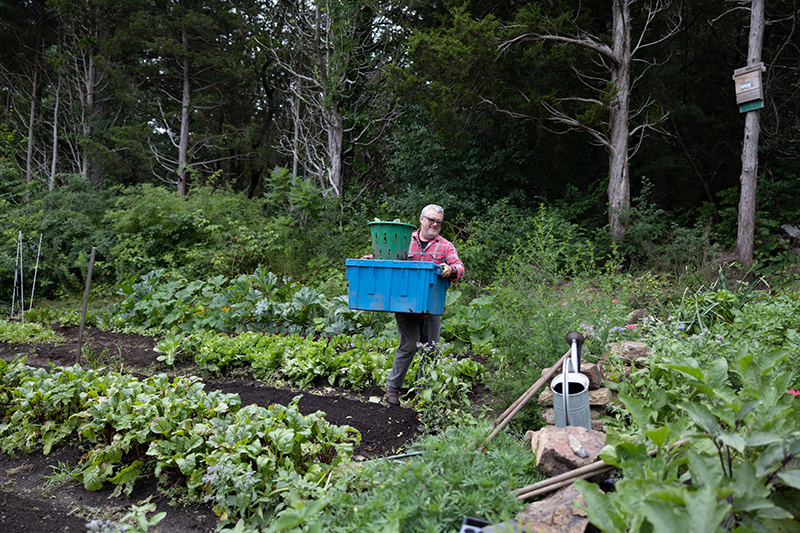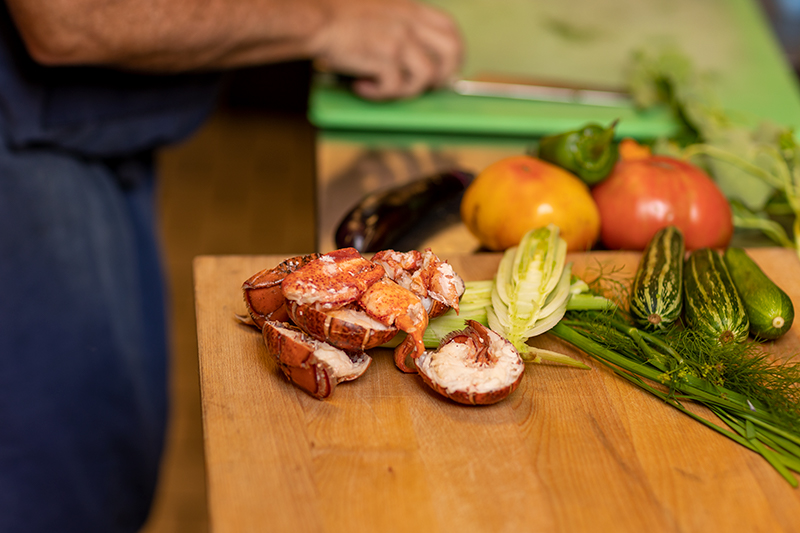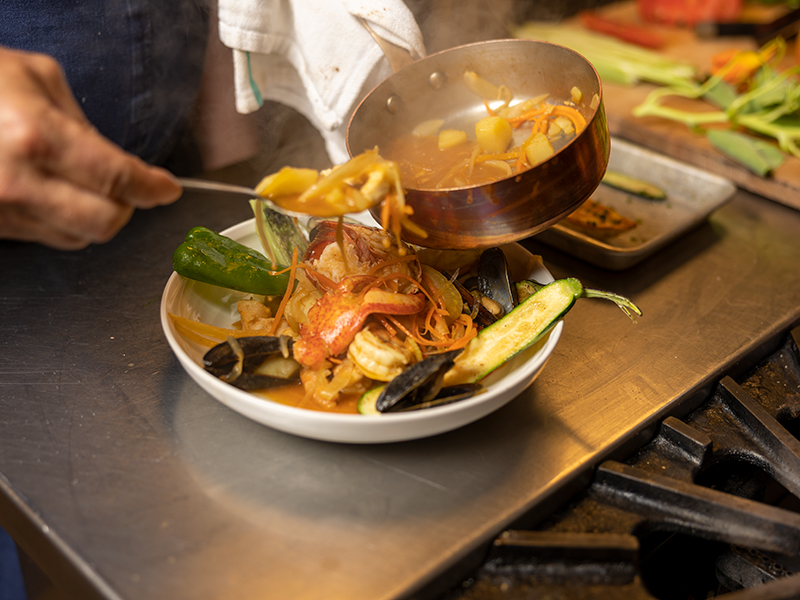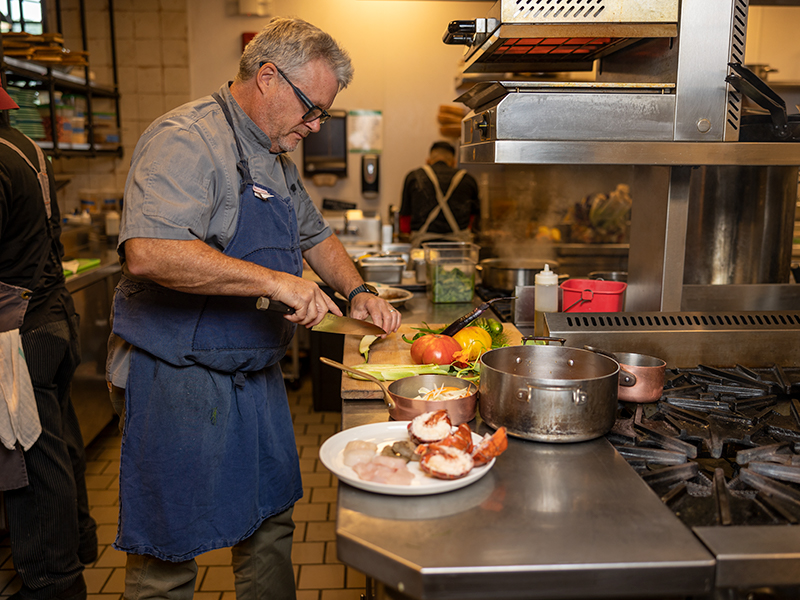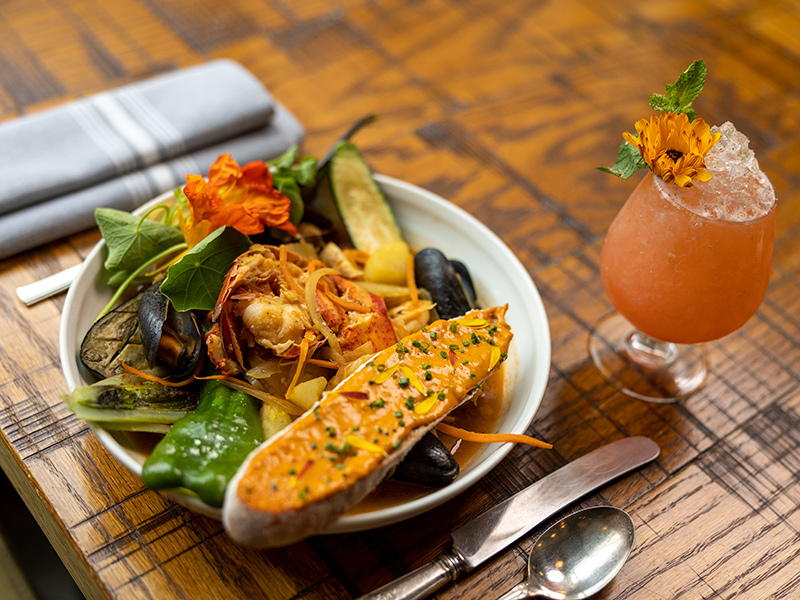Chef Frank McClelland keeps moving the stone wall surrounding his home garden in Essex to make room for more plants. The most recent addition: vines growing a pinot-noir style grape.
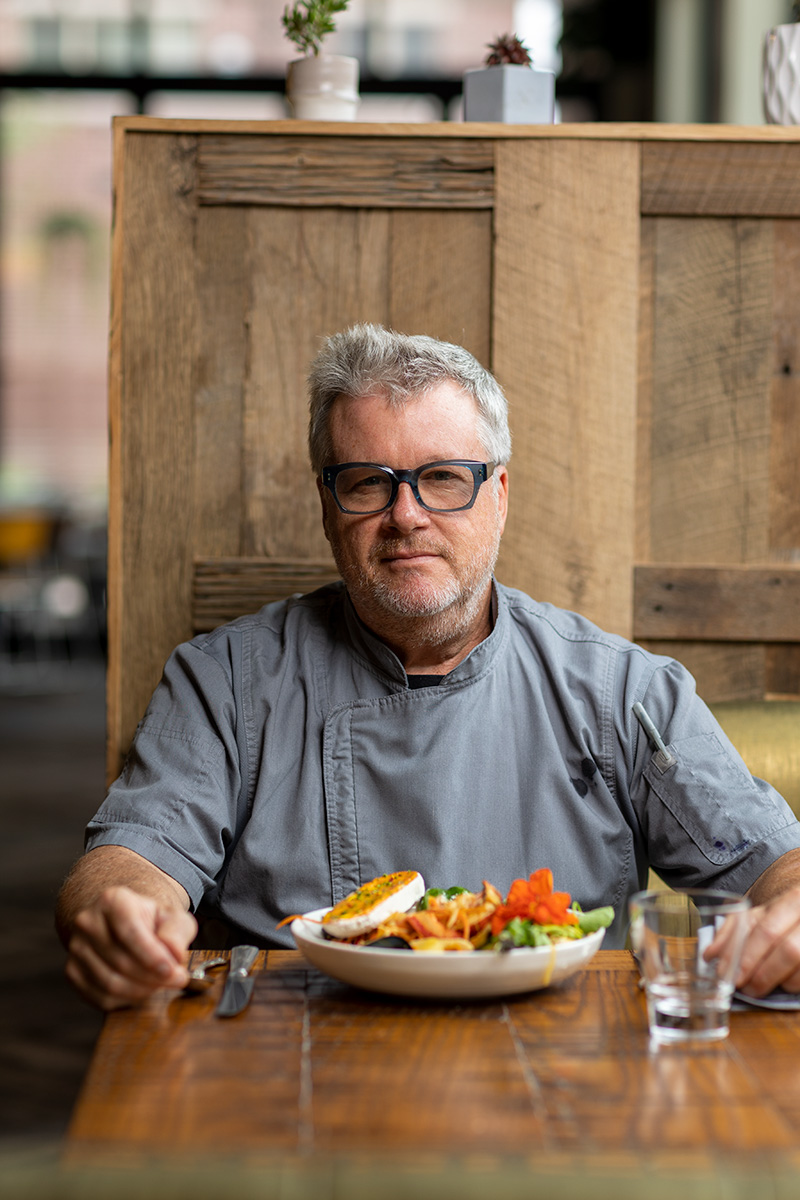
The whole plot, now eight rows wide by 100 feet long, is also bursting with borage, husk cherries, onions, zucchini, potatoes, carrots, and tomatoes. The fragrance of Sweet Annie, a tall silvery-green annual herb, wafts over the entire patch—McClelland likes to use it in floral arrangements around his house or in his restaurant, FRANK in Beverly.
Many of the vegetables are also destined for the restaurant, where local produce is central to the award-winning chef’s cuisine. The reason is simple: “Perfection,” McClelland says. “It is a driving force to get the best, freshest ingredients.”
Sourcing was a cornerstone of McClelland’s philosophy long before he opened FRANK in late 2019. His grandparents raised meat animals, grew vegetables, and did all their own canning on their farm in the Lakes District of New Hampshire. That experience naturally traveled with him in his career, and blossomed when he purchased celebrated Boston restaurant L’Espalier in 1988. “It wasn’t for publicity or trying to do something different,” McClelland recalls of his devotion to local farms. “It just drove my focus on New England cuisine with a backdrop of European style.”
Without much fanfare, the chef was instrumental in what became the local food movement on the East Coast, traveling all over the region to source from farmers who hew to traditional methods and produce excellent products.
Sometimes, the products traveled to McClelland, as was the case with cheesemaking couple Liz and Peter Mulholland at Valley View Farm in Topsfield. Peter was working at Fidelity Investments in Boston, and making cheese from a herd of goats on the side, when he got a call from McClelland.
The couple was thrilled by the chef’s interest. “I was like, ‘Wow, he’s kinda famous,” Peter recalls with a laugh. “He’d been in magazines.” So Peter brought a cooler full of his products on the train to work one morning, then rolled it over to L’Espalier—the start of a relationship that is now more than two decades old, lasting from L’Espalier, which McClelland closed in 2018, up through Frank.
“Someone with Frank’s reputation trying our cheese was so important,” Peter recalls. “It’s everything,” Liz affirms. “When a chef features our products on their menu, diners might look for us at retail.”
Not to mention, of course, the purchasing volume and stability that a restaurant offers. Stability is something that Cedar Rock Gardens in Gloucester has gotten from McClelland quite literally. One of their greenhouses is from the chef’s former Apple Street Farm, and his restaurants have been one of the farm’s biggest standing wholesale accounts since Elise and Tucker Smith started the operation in 2014.
That support, alongside a strongly devoted CSA group, has enabled the couple to expand annually, this year building a vast new greenhouse to extend their winter growing season and feed increased year-round demand for locally grown vegetables, which expanded exponentially when the pandemic disrupted supply chains. Things like carrots, kale, chard, bok choy, spinach, and arugula can all be successfully grown with passive heating methods even when there is snow on the ground outside, Tucker says. “Winter products mean year-round income,” Elise adds, making farming a more viable operation for their growing family.
In the bountiful summer months, the focus is finding buyers for sometimes unpredictable bumper crops. “Restaurants that have a fluid menu are the best,” Tucker says. “They’ll buy whatever we have in bulk.” McClelland is a master of that type of flexible sourcing—say the word beets, and he’ll spin off half a dozen ways to incorporate them subtly into a menu, from a roasted beet salad to accompany rib eye steak to fried beet chips.
“We can use them in multiple ways with such different preparations that it won’t look like beet heaven on the menu,” he says.
To make sure he is taking full advantage of the region’s bounty, McClelland recently trained Steven Penrod to be the restaurant’s “forager.” Penrod, who has worked for McClelland on and off since 2016, in the kitchen at L’Espalier, then at FRANK, has always had an interest in wild foraging, bringing mushrooms, flowers, and other edibles to the restaurant. He will now add cultivated land to his circuit, meeting with area farmers to see what abundance might be coming down the pike.
Penrod is excited about the new responsibilities. “I think it’s very important for restaurants to rely less on the mainstream purveyors and more on the direct contact with farms,” Penrod says. “It’s a lot of effort, but it develops a respect for the ingredients. And I think it adds an extra layer of excitement to the plate.”
Penrod’s work is likely to get even more demanding next year, when McClelland opens a second restaurant in the Dunham Ridge Complex in North Beverly. It will offer restaurant and retail space, like the original location, but with added capacity for off-site catering. “There’s such a supply that we’re barely scratching the surface, and there’s a line of farms that we want to work with,” McClelland says. “I’m hell-bent on using as much as I can.”
Adventurous Eaters Wanted
Want to explore what is currently inspiring Frank McClelland and his team at Frank? Sign up for the Apple Street Supper Club, a monthly event driven by eating locally and creating community. Each month, long tables are set in the middle of Frank’s dining room, for members to enjoy a prix-fixe dinner, complete with wine pairings. Each has a theme—recent ones jumped wildly from an all-vegetable dinner one month to a full-on carnivorous barbeque spread the next.
“It’s a chance for our chefs to flex their culinary muscles and get creative with new ingredients and techniques that don’t appear on the daily menu,” says McClelland. “Sometimes ingredients are limited or techniques are too complex for nightly service, but the small, intimate setting of our Supper Club allows for more experimentation.”
Membership is free and limited, with a few new places expected to open up this fall. For details or to express interest, drop a line to info (@) farmtofrank.com.

